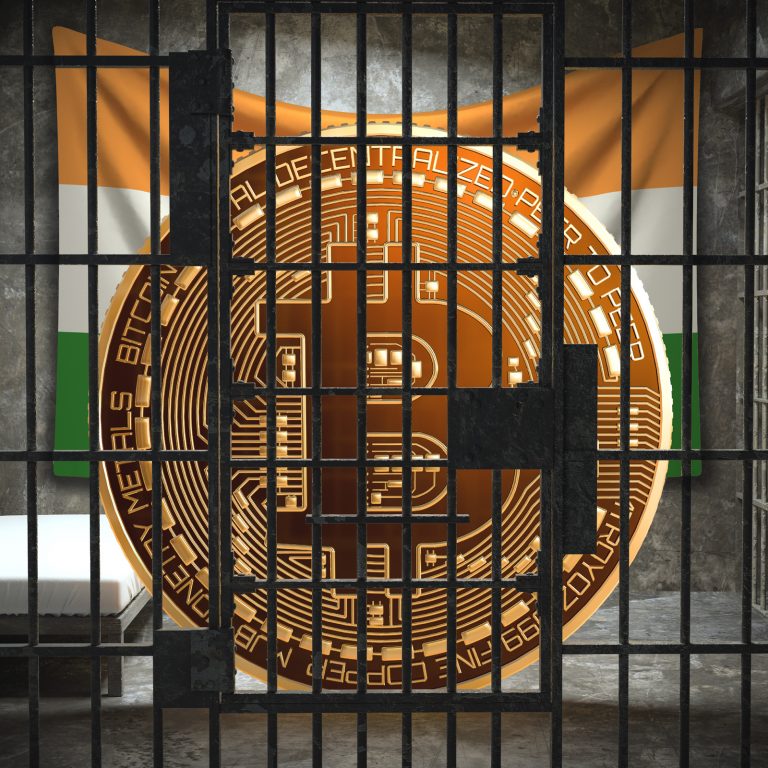
Regulatory pressures and a broadening bank clampdown have seriously affected cryptocurrency exchanges in India. Their representatives claim bitcoin trading has dropped as much as 90 percent in the last two months. Cryptos are not considered legal tender in the country and authorities have demonstrated a negative attitude towards their use. At the same time, leading Indian banks have taken steps to limit exchange operations even before any rules mandating such policies are adopted.
Also read: India Can’t Regulate Bitcoin Says Official
Regulatory Uncertainty, Hostile Attitude
Indian trading platforms have suffered from great uncertainty about the future of cryptocurrencies in the country. Authorities in Delhi have issued multiple warnings and have threatened to stifle the use of digital money for illicit purposes. They have repeatedly stated that cryptos, like bitcoin, are not considered legal tender in India. However, neither an outright ban, nor any clear regulations have been adopted to this day. While the work on a comprehensive legal framework continues, after unfulfilled promises that new regulations would be unveiled soon, some officials have recognized that it is proving impossible to effectively regulate cryptocurrencies.
 Despite the absence of government regulations, Indian banks have taken matters into their own hands. Without any mandate from the Reserve Bank of India (RBI), commercial banks have been tightening the clamp on crypto trading. The country’s biggest financial institutions, including Citibank, ICICI Bank, HDFC Bank, Kotak Mahindra Bank, and the State Bank of India, have already suspended trading accounts of bitcoin exchanges. They have also imposed measures to restrict crypto-related transactions conducted by ordinary citizens, with two banks notifying customers they cannot use their credit, debit and prepaid cards to purchase cryptocurrencies.
Despite the absence of government regulations, Indian banks have taken matters into their own hands. Without any mandate from the Reserve Bank of India (RBI), commercial banks have been tightening the clamp on crypto trading. The country’s biggest financial institutions, including Citibank, ICICI Bank, HDFC Bank, Kotak Mahindra Bank, and the State Bank of India, have already suspended trading accounts of bitcoin exchanges. They have also imposed measures to restrict crypto-related transactions conducted by ordinary citizens, with two banks notifying customers they cannot use their credit, debit and prepaid cards to purchase cryptocurrencies.
The regulatory uncertainty and the hostile attitude have caused a significant decrease in transactions on local bitcoin trading platforms, the Economic Times reported. “There is a 90 percent drop in the volume of trade across all Indian exchanges,” chief executive of Coinsecure, Mohit Kalra, told ET. “Our volumes are down from around 300-400 bitcoins daily in December to about 30-40 bitcoins a day now,” he added describing a 10-fold decrease.
Banks Accused of Disruptive Behavior
The actions of Indian banks mirror similar moves by some of the world’s biggest banks, like JP Morgan Chase, Bank of America and Citigroup. Last month they banned crypto purchases with their credit cards, justifying the measure with concerns about defaults due to dropping crypto values. Representatives of the Indian crypto industry have accused local banks of “irresponsible overreach”, “unilateral decisions”, and “disruptive stance”. “Without any clear mandate from regulators, asking us to close down our accounts, while refusing to give the reason in writing, is just disruptive to our business,” said Ajeet Khurana who is heading the Blockchain and Cryptocurrency Committee of India (BACC). The organization is working to introduce self-regulation in the sector.
Customers are panicking and getting agitated, as they are not able to receive their money.
That’s how the chief executive of another Indian exchange, Bixoxo, described the situation. “We are struggling to offer withdrawal services since our bank accounts are being shut. This has caused delays of up to one week for no mistake of ours”, said Hesham Rehman. “Our average volume has dropped from 300 – 500 bitcoins to 20 – 30 bitcoins now”, he added. The daily trading volumes of top Indian exchanges, like Zebpay and Koinex, have also decreased from 1,000 to 300-500 bitcoins.
 According to Zebpay’s CEO Nischint Sanghavi, promoting the use of banking channels actually enables tracking and taxing cryptocurrencies. Banning it would not serve the purpose of curbing illegitimate transactions, he warmed. Sanghavi believes that know your customer procedures and anti-money laundering measures implemented by Indian exchanges can only aid the efforts to keep track of money flows.
According to Zebpay’s CEO Nischint Sanghavi, promoting the use of banking channels actually enables tracking and taxing cryptocurrencies. Banning it would not serve the purpose of curbing illegitimate transactions, he warmed. Sanghavi believes that know your customer procedures and anti-money laundering measures implemented by Indian exchanges can only aid the efforts to keep track of money flows.
The hostile environment has already forced two Indian platforms to suspend operations. Btcxindia and Ethexindia, serving about 35,000 customers, halted cryptocurrency trading on March 5. As news.Bitcoin.com previously reported, more and more Indians have been trying to buy cryptocurrencies from abroad through overseas accounts of relatives and friends. Others have resorted to cash-based trading to acquire bitcoins or other cryptos. According to some reports, a new law banning unregulated deposits is on the way. If such legislation is adopted in India without provisions to legalize the crypto sector, these trends are likely to continue to evolve.
Do you expect the clampdown on cryptocurrency trade in India to continue? Share your thoughts in the comments section below.
Images courtesy of Shutterstock.
Express yourself freely at Bitcoin.com’s user forums. We don’t censor on political grounds. Check forum.Bitcoin.com.
The post Bitcoin Trade Drops in India Amid Uncertainty and Clampdown appeared first on Bitcoin News.
from Bitcoin News http://ift.tt/2IGO1mx
via IFTTT